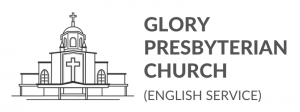- HOME
- LATEST
- ABOUT GPC
- NEW HERE?
-
MINISTRIES
- Ministry Awareness: Opportunities to Serve
- Care Group
- Church Wide Bible Study (CWBS)
- Family Ministry
- Filipina Fellowship
- Indonesian Fellowship
- Mission Ministry
- Music Ministry
- Outreach Ministry
- Precept Bible Study Ministry
- School Ministry
- Senior Adults Fellowship (SAFE)
- Sunday School
- Women Ministry
- Youth and Young Adults Ministry
- RESOURCES
- CONTACT US
- GIVE
- 中文部
BY PR. ISAAC CHANG
When I studied biology in school, it amazed me how our food digestive system could turn our food into energy. For instance, the carbohydrate that we eat will be digested by our stomach and broken down into glucose as fuel for our body. And when we have surplus glucose, it will be converted into fat. In this image-conscious era, ‘fat’ is a sinful word to those who love to maintain their body shape. Many want to be fit and healthy. In the same manner, do you know that we can have the spiritual fuel that is garnered from our Bible devotion and studies? And if we don’t use this fuel, it will be converted to spiritual fat. Yes, it is spiritual fat. Besides, having such a reservoir of biblical knowledge without much desire to use it, we can grow spiritually lethargic. And I am not here to judge anyone. The Holy Spirit will reveal to us individually on the conviction of applying the knowledge when we get into the “moment of truth.” So, why don’t we do something about the spiritual fuel or fat before the special moment? How? My thought motioned more on teaching.

Teaching is one of the best ways to burn off our spiritual fat when we teach others what we have learned. Now, we have learned to have a Christ-centred theology, a totality of Scripture, and a transformation to be more like Christ. It is time to put all these into great use in validating what we truly know. As we teach others, we pass on knowledge. Undoubtedly, we will encounter areas that we lack confidence and clarity. And there is no better way to sharpen ourselves through this golden opportunity by revising what we have learned and closing the gap of any misunderstanding. The more we teach, the better we learn. Every time we teach, we will rehearse the concepts and principles from God’s word theoretically and experientially. There is no reason to keep all these to our nourishment.
One of the best ways to teach is to teach a new believer. That’s what Jesus has commanded us in Matthew 28 to make disciples where we go and teach them the Word of God. As we share the Gospel, which is also a form of teaching, we hope the person would accept Christ. When that happens, we will take ownership to start teaching the new believer. And not only can we teach in this approach, but we can also reach out to the young believers in our community groups and show them how we practically live out the Word of God. Teaching through this approach will take our learners beyond the four walls of our physical and online rooms. We can’t teach swimming lessons by using books. Both teachers and students must go down to the pool to teach and show the method of swimming.
“THE BEST WAY TO LEARN IS BY TEACHING.” (FRANK OPPENHEIMER)
At the end of the teaching journey, the ones that we teach will be our partners in Christ. Together as partners in Christ, we will reach more unbelievers outside our circles as one family. Thus, the teaching approach that involves both theoretical and pragmatic aspects at the level of learners and their environments will be a powerful tool in shaping the body of Christ. I pray these four reflections on theology, totality, transformation, and teaching through the Word will encourage you to rethink your journey with the Lord.
